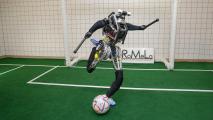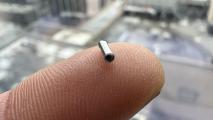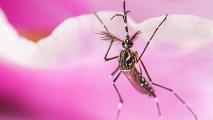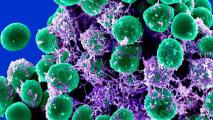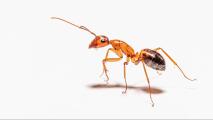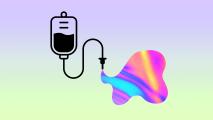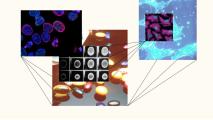
Biotech
Human history has been all but defined by death and disease, plague and pandemic. Advancements in 20th century medicine changed all of that. Now advancements in 21st century medicine promise to go even further. Could we bring about an end to disease? Reverse aging? Give hearing to the deaf and sight to the blind? The answer may be yes. And soon.
More
Two African countries first to approve Oxford’s malaria vaccine, with 20 million doses on the way
Ghana and Nigeria have become the first two nations to approve Oxford’s vaccine against malaria.
How frontotemporal dementia, the syndrome affecting Bruce Willis, changes the brain
What is FTD, the type of dementia that leads to inappropriate social behavior, impulsivity, and loss of empathy?
UCLA’s humanoid soccer robot is headed to the “RoboCup”
A first-of-its-kind soccer robot built by researchers at UCLA is heading to France to compete in the annual RoboCup.
Hollow “seed” shrinks cancerous tumors from the inside
A new drug delivery system for pancreatic tumors could dramatically decrease medication dosages, helping minimize unpleasant side effects.
The imagination effect: A history of placebo power
The famous placebo effect has a long, rich history — it certainly had an outsized role in the medicine of centuries past.
A mosquito factory will create billions of biters in Brazil
The World Mosquito Project’s plan is to introduce bacteria-carrying mosquitoes to stop the spread of dengue.
Dementia patients are “rallying” just before death. Scientists want to know why.
New research into terminal lucidity could revolutionize our understanding of dementia — and maybe even give us a way to reverse it.
Dignity therapy: Making the last words count
Guided conversations with the terminally ill are popular with patients, families and doctors. But are they truly beneficial?
Alzheimer’s disease: an illness that needs a long overdue cocktail
Scientists are starting to agree that the “holy grail” solution for Alzheimer’s is more likely to be a drug cocktail than a single treatment.
Stanford researchers have engineered an organism to fight cancer
A team of Stanford and MIT researchers have engineered bacteria to create a topical tumor treatment and preventative effective in mice.
Alternative funeral options are changing how we honor our dead
A small, yet growing number of people are starting to choose funeral options outside traditional burial or cremation.
LSD effective as major depression therapy in phase 2 trial
MindMed and University Hospital Basel have announced top line results for their phase 2 trial.
Scientists figure out why tardigrades are nearly indestructible
Tardigrades have been frozen, boiled, exposed to extreme doses of radiation, and remarkably still survive. How?
Scientists train ants to sniff out cancer in just 30 minutes
Ants were just as accurate as cancer-sniffing dogs. Better yet, they could be trained in minutes rather than months.
Study finds CPR patients may frequently have near-death experiences
In a study of CPR patients across the US and UK, researchers found new evidence about near-death experiences.
Nurses are breaking the mold to set out on their own
Tech platform Hydreight wants to help nurses go into business for themselves by being a turnkey solution.
DMT appears effective for depression up to six months later
Small Pharma has announced the results of a six-month follow-up for their phase 2a trial of DMT for depression.
Some cancers shouldn’t be treated
We’re detecting and aggressively treating more tumors than ever before. But we’re also over-treating more cancers then ever.
“Sunshine Calls” help depression and loneliness, study finds
A trial of “Sunshine Calls” found that the empathy-based phone calls helped reduce depression symptoms in older patients.
“Nanosyringes” can inject medicine into a single cell
MIT researchers have turned a system found in bacteria into programmable “nanosyringes” for injecting proteins into human cells.
Get inspired with the most innovative stories shaping the world around us.















